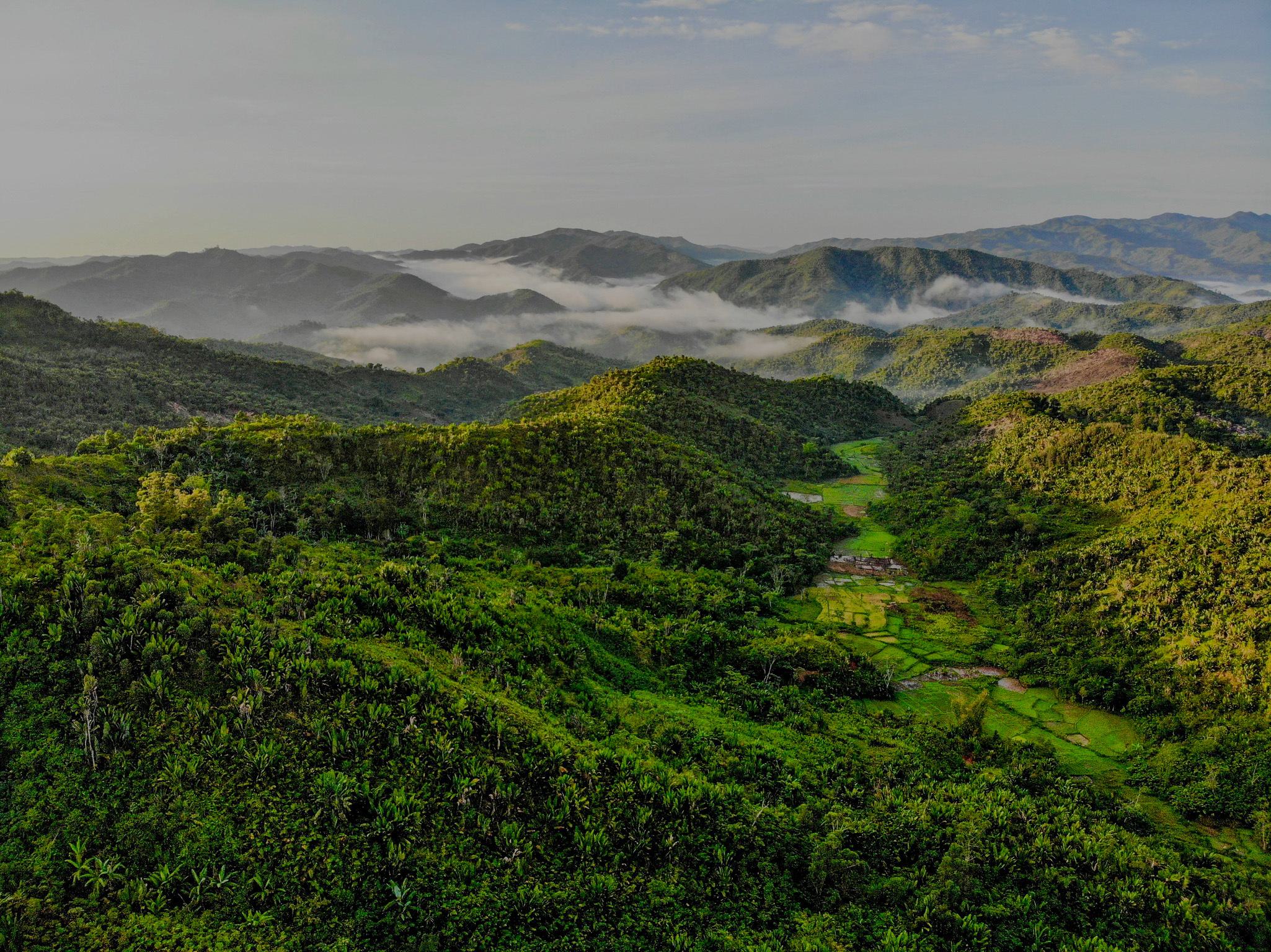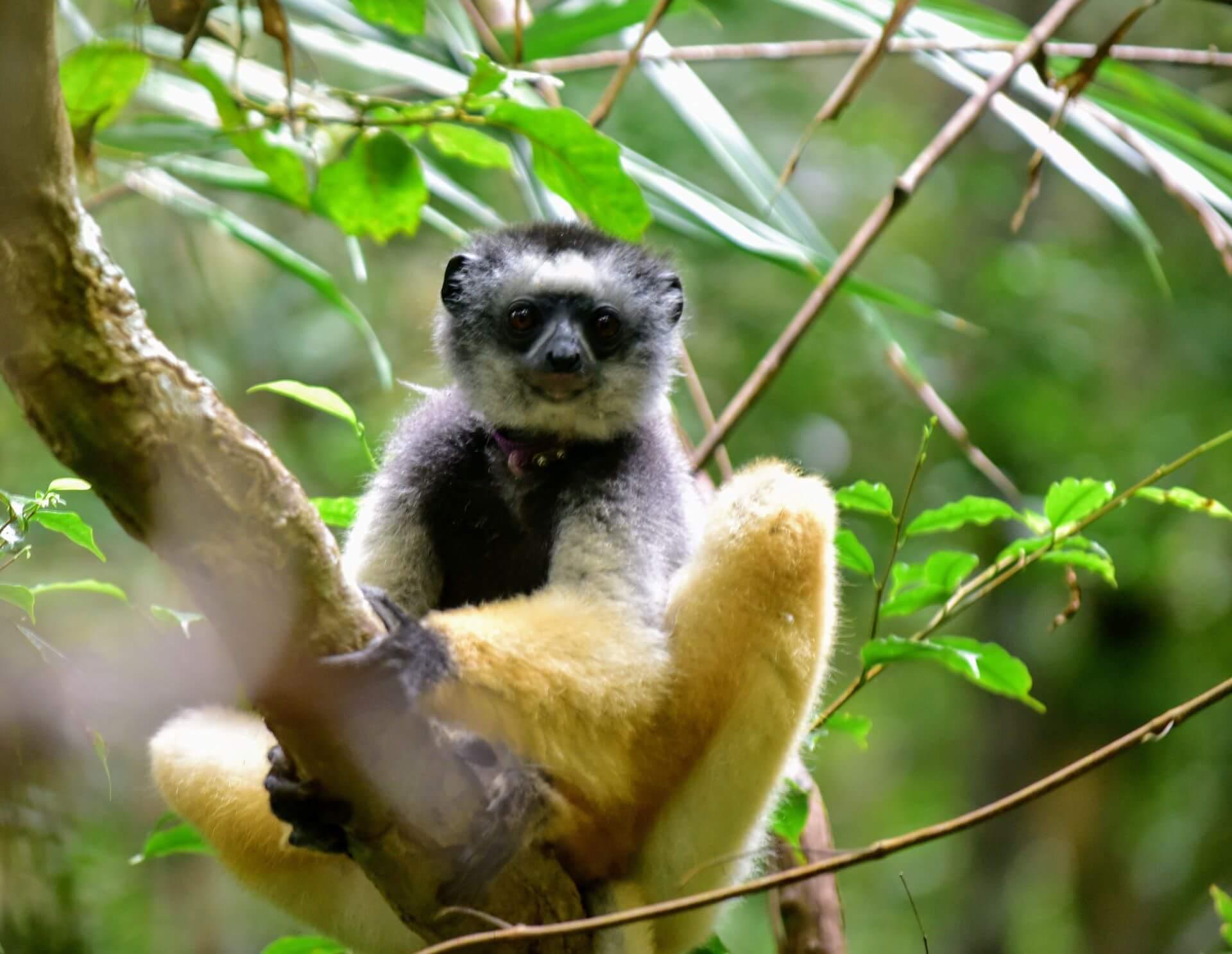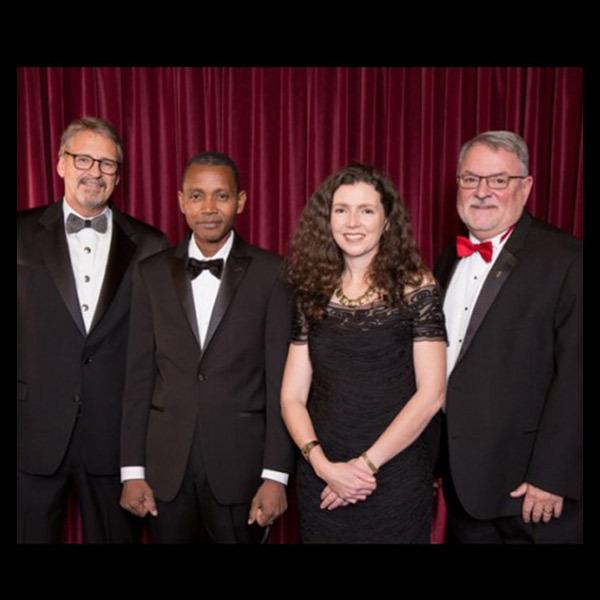
Center for Conservation in Madagascar

Background
Madagascar’s animal and plant species, including highly endangered lemurs, are found nowhere else in the world. The various species of lemur range anywhere from the pygmy mouse lemur, weighing only an ounce, to the indri, which can weigh up to 19 pounds. As recently as 2,500 years ago, lemurs the size of gorillas roamed the island, and 10-foot-tall birds, known as elephant birds, roamed the southern coast. Today, over 98% of the known lemur types are on the brink of extinction. Many other animals and plants on the island, such as the radiated tortoise and the beautiful rosewood tree, are also at risk of disappearing.
The Center for Conservation in Madagascar supports the work of the Madagascar Fauna and Flora Group (MFG) through membership, research and salary support. MFG works to conserve the island’s animal and plant species through conservation, research, education and capacity building.
St. Louis Interest
The Center for Conservation in Madagascar is one of the original Centers of the Saint Louis Zoo WildCare Institute. The Center’s primary goal is to reduce direct pressures on Madagascar’s threatened and endangered species. To achieve this goal, the Saint Louis Zoo works through a consortium known as the Madagascar Fauna and Flora Group (MFG). The MFG was founded on the principle that uniting individual institutions under one umbrella significantly increases the contribution any one facility can make on its own. The MFG is an international, non-governmental organization comprised of zoos, aquaria, universities and other conservation organizations. As a collective body, it works with Madagascar government authorities and in-country staff to achieve conservation action, research, capacity building and education efforts in eastern Madagascar.
The Saint Louis Zoo was a founding member of the MFG and has been committed to wildlife conservation efforts in Madagascar since the late 1980s, with the earliest efforts focused on conservation research and wildlife recovery of lemur species. In more recent years, wildlife conservation efforts have expanded to include other fauna, which has led to the discovery of over 35 new species of frogs and snakes as well as new insights about disease transmission among native and introduced carnivore species. We also have continued our commitment with lemurs through a genetic management and translocation project of two critically endangered lemur species, the diademed sifaka and the black-and-white ruffed lemur. In addition, the consortium also has flagship projects relating to working with communities to promote habitat restoration and agroforestry; and working with Madagascar’s Ministry of the Environment on the biological control of invasive species.
In addition, this Center has expanded its partnership to include Mahaliana Labs, which is a unique molecular diagnostic laboratory and training center with aims to have Malagasy scientists and conservationists work in-country on conservation issues relating to Madagascar’s endemic and critically endangered species. Dr. Fidy Rasambainarivo, the Scientific Director, is also an Affiliate Scientist of the Zoo.
Lisa Kelley, Ph.D., Executive Director of the WildCare Institute, serves as Secretary on the executive board of the Madagascar Fauna and Flora Group, and is Director of the Center.

Action Leading to Impact
From species discovery to the expansion of protected habitat to the maintenance and improvement of Madagascar’s one of only two zoos, our decades of commitment is being rewarded with impact.
Conservation Heroes
In 2017 the Saint Louis Zoo presented its Conservation Award to Karen Freeman, Ph.D., who is now Executive Director, and Jean Noel, Manager, of the Madagascar Fauna and Flora Group.
To date, the survival of the endangered plant and animal populations in Betampona Natural Reserve can be wholly attributed to the continual presence of the Madagascar Fauna and Flora Group's research team and these two amazing individuals.

Through their roles in the MFG, Freeman and Noel have worked together in Madagascar's Betampona Natural Reserve through decades of support and partnership with the Saint Louis Zoo WildCare Institute Center for Conservation in Madagascar.
Besides her extensive research, Freeman works to build relationships with local and national officials in charge of environmental affairs, university professors and students, mayors and village leaders, NGOs and a network of researchers to draw attention to the significant threat invasive plants and animals pose to the ecological structure of Betampona and other Malagasy rainforests.
Noel's passionate commitment to his native land's flora and fauna is demonstrated by the attention and care he pays to organizing the logistical needs of each researcher that works in Betampona. He has dedicated over 20 years to protecting the rainforest that was approximately two miles from where he grew up in Madagascar.
More About Madagascar
To learn about impact in this beautiful country, watch this "thank you" video from the Chair of the Madagascar Fauna and Flora Group.

